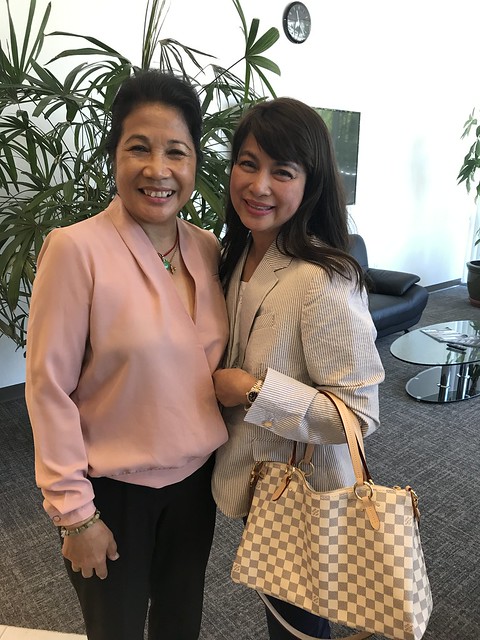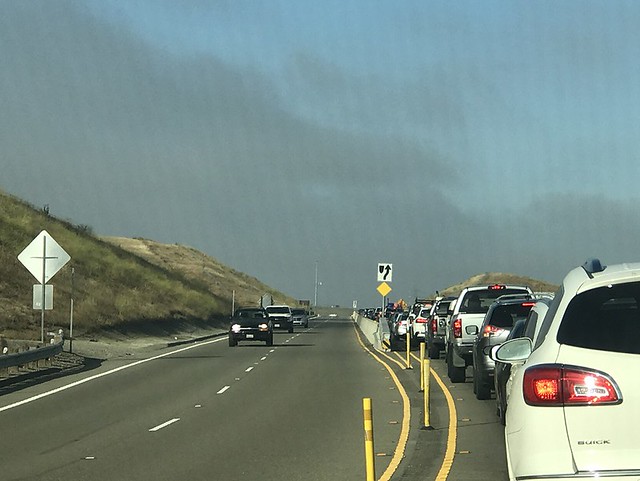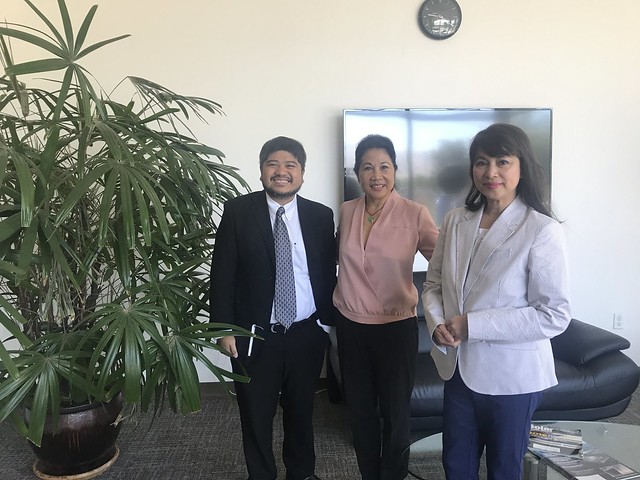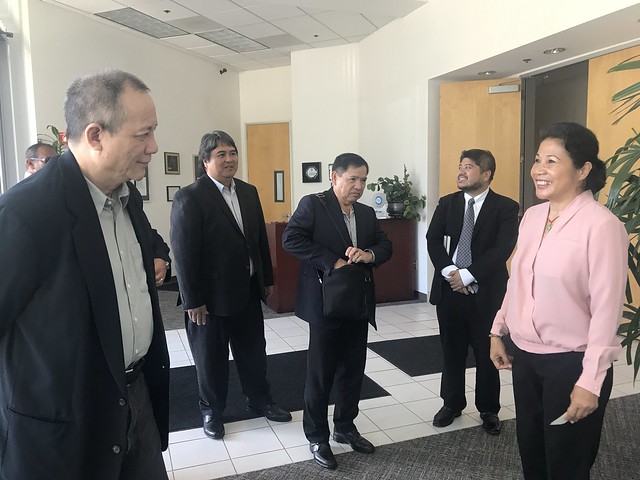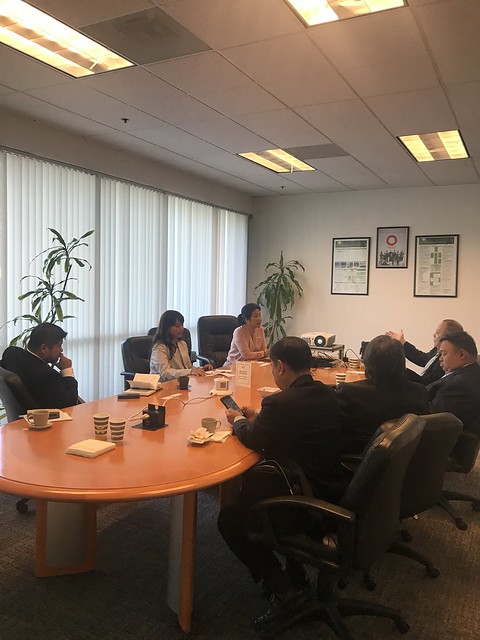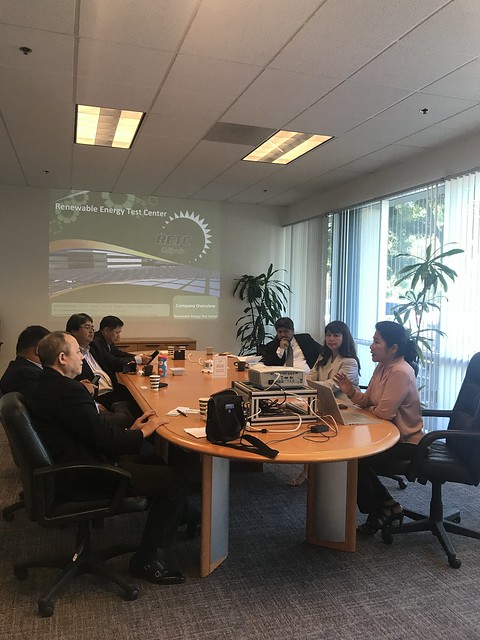June 19, 2019
My husband woke me up at 5:45 am worried about the heavy rush hour traffic to Silicon Valley. It took us 1.5 hours to 2 hours to Stanford yesterday, and today, we were going towards the same direction, to Fremont. It’s closer distance-wise and since we don’t have to cross Dumbarton Bridge then it should take us at least half an hour less.
We were totally wrong. Traffic was heavy all the way. It took us half an hour more to reach Fremont. The exact opposite happened.
Our meeting with the Renewal Energy Test Center was at 10 am. I thought I would be 15 minutes late but it turned out, I was the very first to arrive. Fifteen minutes later the consulate officers came. My colleagues arrived at past 10 am. Na-traffic din sila.
We were welcomed by Alelie Funcell, the Filipina founder and executive director of Renewal Energy Test Center or RETC for short. Ayala, Banatao, Marubeni, and a brother of Tonyboy, are partners or investors. She sold her shareholdings to Marubeni but she’s still very much involved in running the company. Marubeni now owns 70% and Ayala 25%. The rest is shared by smaller investors.
Alelie introduced us to Cherif Kedir, the current president and CEO of RETC. She also introduced us to several Filipinos working in RETC. There are more Filipinos here than Americans and she said RETC is known to be a Filipino company.
We had a 30 minutes meeting in their conference room.

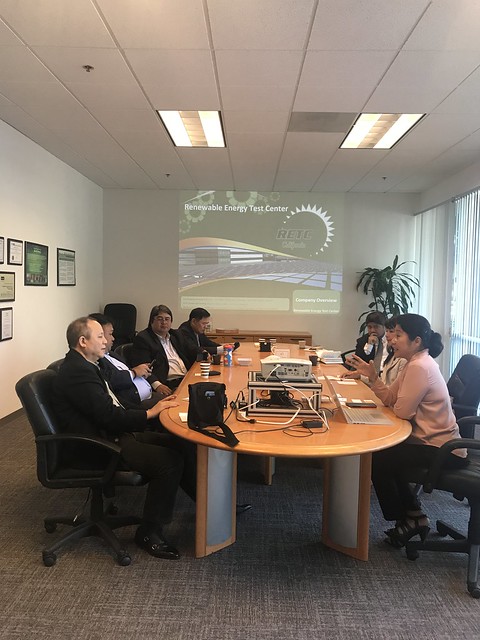
RETC basically is an authorized testing center for solar panels.
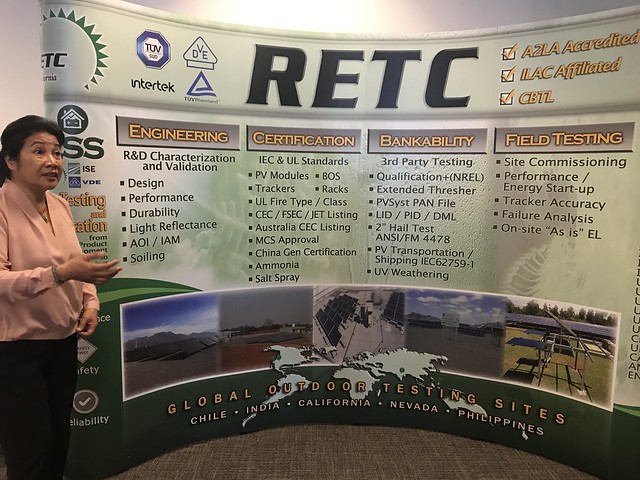
Alelie is one Filipina we can all be proud of. She is a graduate of chemical engineering from the University of Santo Tomas (Go USTe!). If my memory serves me right, she worked in Intel in the 1970s, 15 years in the semiconductor industry, and in 2005 she immigrated to the US and worked for 3 years as VP Operations in Silynx, the largest and most successful company in the Silicon Valley for 11 years. After her stint at Silynx, she founded Solarian, a company that markets solar panels.
According to Alelie, the Philippines is a dumping ground of sub-standard products including solar panels because there are no regulations.
Solar panels must be tested and certified before it can be sold to the market. A good quality solar panel must have 20 to 25 or even 30 years of long term reliability. But the solar panels sold in the Philippines last for 2 to 5 years maximum.
She said panels shipped to the Philippines are of poor quality and they can cause fire and you can be electrocuted if not built properly and fully insulated.
She toured us around the huge multi-million dollar laboratory testing facility where we saw first hand the engineers and technicians in action. The panels were being tested for different conditions such as water, wind velocity, sunrays, movements, installation, cracks, etc.
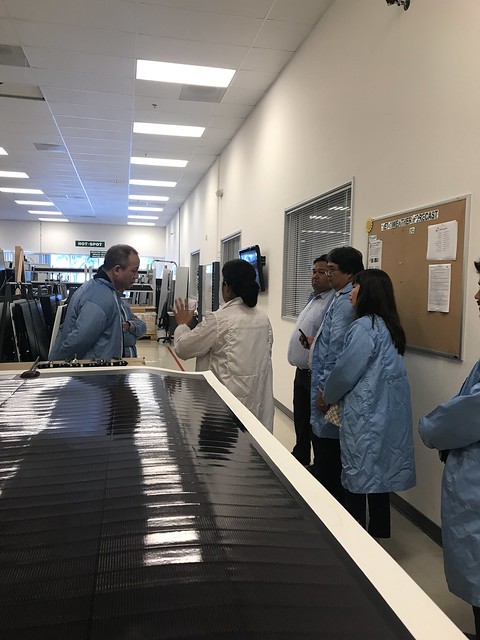
This area is supposed to be off limits to visitors but Alelie allowed us to go inside. And not only that, she patiently explained to us each and every process of testing the solar panels to make sure they are 100 percent top quality.
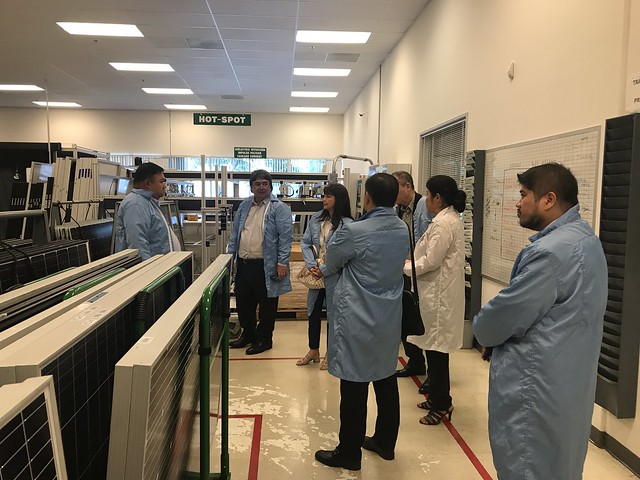
Jun Bella tried testing the durability of the solar panel. The panel didn’t break when Jun pushed the button and a golf-sized ice came out so fast and hit the panel. This is hail testing for countries with winters.
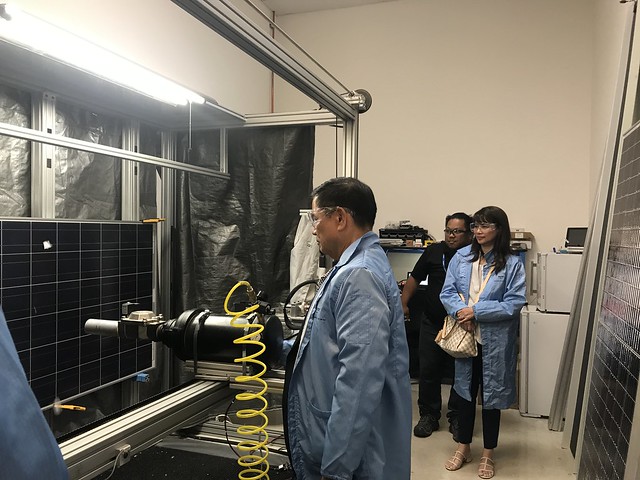
Our thanks to our trade attache group and Stratbase for facilitating this visit. It was a very interesting meeting and we learned a lot. Our colleague Jun Bella owns a 50 hectare solar panel field in General Santos and the information we learned during our visit are most valuable to him.

Our sincere appreciation to Alelie Funcell for having us. Continue making our country proud. Cheers!
